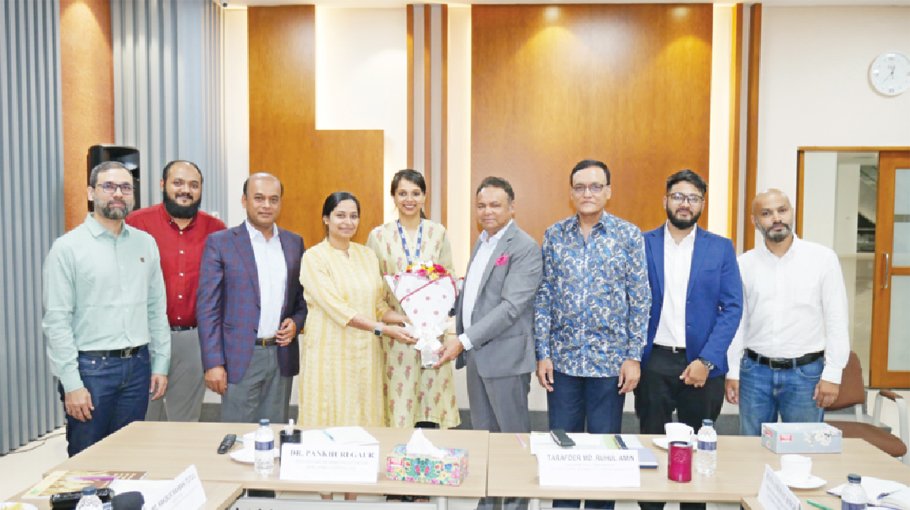Infrastructure dev key to narrow the India-BD trade gap

Mentioning that India has a huge trade deficit with Bangladesh, experts at a meeting observed that to eliminate this deficit, first of all, non-tariff barriers, modernization of infrastructure sector of land ports of both countries, simplification of rules of origin and construction of modern warehouses in land ports are necessary.
The meeting was held with Chittagong Chamber and representatives of India Research and Information System for Developing Countries on Thursday.
India's Ministry of External Affairs Research and Information System (RIS) Assistant Professor Dr Pankhuri Gaur and Research Associate Rana Amanat Singh interacted with the leaders of the Chittagong Chamber of Commerce and Industry at the World Trade Center .
Chittagong Chamber Senior Vice President Tarafdar Md Ruhul Amin, Directors Md Rakibur Rahman (Tutul), SM Tahsin Jonaid, Mohammad NasirulAlam (Fahim), former Director Mahfuzul Haque Shah and Reliance Assets & Developments (BD) Limited Director Omar Muktadi participated in the discussion. Chamber Senior Vice President Tarafdar Md Ruhul Amin said, India-Bangladesh relations are a shining example of friendship between two neighbouring countries. Chittagong is considered as a very important region for geographical reasons. The government has taken up the Bay-Terminal scheme to deal with the growing import-export trade pressure.
More than 4 billion investment is expected here in next 2-3 years. Although India has naval connectivity with Bangladesh, it is not being used properly. Therefore, to reduce the cost and time of trade between the two countries, utmost importance should be given to maritime communication.
Besides, construction of a separate jetty for Bangladesh at Kolkata port and direct sea connectivity with Chittagong, Mongla and Pangao ports in the region will reduce trade costs and time. Urged the delegation to take quick action in this regard.
Those products enter after clearance from Central Quality Control Organization of India. Similarly, the same procedure is followed when goods are coming from India to Bangladesh. Therefore, in this case, regardless of the country from which the product is exported, if a consensus is reached on the common testing certificate, the trade will be easier.
Dr Pankhuri Gaur said that Bangladesh and India are largely self-sufficient in agriculture. Bangladesh is very advanced in the production of freshwater fish, fruits, potatoes and other vegetables. Due to some obstacles in the import and export of these perishable goods, trade is not easily conducted with India as well.
He expressed hope that the elimination of non-tariff barriers and ensuring product processing and technological excellence in agriculture would increase trade between the two countries. He commented that higher research is needed on how BIMSTEC countries can meet their own needs and export food to other countries of the world.



